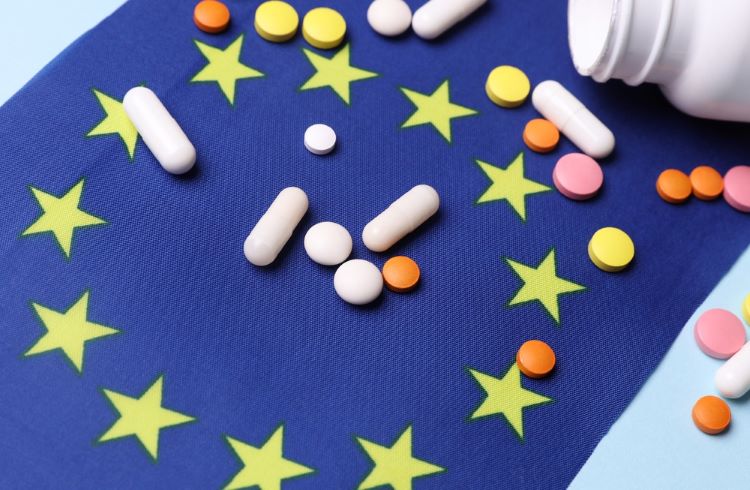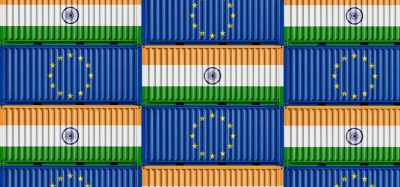Resilient supply, reliable care: safeguarding Europe’s generics in an uncertain world
Posted: 14 August 2025 | Michal Nitka (Teva) | No comments yet
In this article, Michal Nitka, Senior Vice President, Head of Generics Europe & Global Head OTC, Teva Pharmaceuticals, outlines how policy reform, digital innovation, and manufacturing resilience can secure sustainable access to essential treatments – ensuring generic medicines remain a cornerstone of equitable, reliable care.


As Europe grapples with increasing geopolitical instability, rising healthcare costs, and growing demand for equitable access, the role of generic medicines has never been more essential. Yet, the sector is under strain, threatening not only the sustainability of critical medicines but also the EU’s pharmaceutical sovereignty.
Despite being the foundation of sustainable and accessible healthcare, generic and biosimilar medicines are under unsustainable pressure. The EU’s supply chains are highly consolidated: 46 percent of critical generics rely on a single supplier,1 and 83 percent depend on suppliers with over 60 percent market share.1 This fragility, coupled with a decade-long decline in generic prices (down eight percent) while consumer prices have risen by 30 percent, has created a market that discourages investment and forces the withdrawal of critical medicines across oncology, cardiology, mental health, antibiotics, and others.1
The root causes are complex and include aggressive price competition, disproportionate regulatory burdens, and rising environmental compliance costs together with other structural factors and inflation. These pressures have made many mature generics economically untenable, threatening the long-term sustainability of Europe’s access to critical therapies. Addressing these systemic vulnerabilities requires open dialogue with all stakeholders and a strategic shift in how Europe supports and governs its pharmaceutical ecosystem.
Safeguarding Europe’s medicine supply
To rebuild resilience, the EU must take decisive action and implement long-term incentives for sustainable and diversified manufacturing across EU Member States. A ‘one-stop shop’ for strategic projects could accelerate investment by streamlining coordination between EU and national authorities.
Achieving pan-European harmonisation and better coordination of national stockpiling strategies is essential”
Stronger EU-level coordination is also needed beyond manufacturing. Achieving pan-European harmonisation and better coordination of national stockpiling strategies is essential. In addition, finalising pharmaceutical legislation can also help by ensuring fair access and enabling the timely introduction of generic and biosimilar medicines.
Equally vital is the reform of procurement practices. Europe should shift from a focus on lowest-price tenders to approaches that prioritise multiple criteria – such as reliability, environmental responsibility, and long-term supply security – through multi-winner models. Integrating mandatory supply security standards into tenders would incentivise local production and help prevent shortages. It is crucial to recognise EU-based manufacturing and resilience within tender evaluations, while ensuring compliance with World Trade Organisation (WTO) regulations. Adopting multi-winner schemes would foster supplier diversity, while rethinking pricing structures can help mitigate the trend towards consolidation.
Strategic actions
These policy shifts lay the groundwork for broader legislative action – momentum that the Critical Medicines Act (CMA) seeks to build upon.
The CMA is a promising step towards resilience. Teva welcomes the CMA’s intent but sustainable implementation across Member States is essential, including:
- Embedding supply security and resilience within the internal market through tender reform
- Harmonising national stockpile requirements across the EU
- Finalising pharmaceutical legislation to accelerate timely access to generics and biosimilars
- Reviewing environmental regulations like the Urban Wastewater Treatment Directive to avoid unintended disruptions.
Legislative ambition alone is not enough – Europe must also confront other external factors that continue to destabilise medicine supply chains.
Geopolitical instability and trade tensions has exposed the fragility of global supply chains. To safeguard the supply of generics, the EU should promote health-focused trade agreements to restoring competitiveness and resilience and avoid geopolitical pressure that could endanger access to medicines.
To safeguard the supply of generics, the EU should promote health-focused trade agreements to restoring competitiveness and resilience and avoid geopolitical pressure that could endanger access to medicines”
To make these safeguards truly effective, Europe must move beyond patchy national efforts and embrace a unified, coordinated approach. Fragmented national stockpiling is inefficient and often counterproductive. It can drain supply from one country to another and create unnecessary competition. Teva calls for a harmonised EU-wide solidarity mechanism underpinned by:
- Need-based reallocation of existing stocks, rather than duplicating safety obligations
- Public funding to maintain emergency inventories, avoiding cost burdens on manufacturers
- Real-time data sharing via platforms like the European Medicines Verification System (EMVS), enabling better forecasting and allocation.
Harnessing advanced technologies to secure Europe’s supply chain
Artificial Intelligence (AI) and digital tools are crucial for enabling smarter, faster coordination across Europe’s medicine supply chains. By using advanced analytics, real-time monitoring, and predictive modelling, the EU can significantly improve the agility and efficiency of cross-border supply responses. Embracing AI-powered platforms will optimise stock management, enhance demand forecasting, and allow rapid resource reallocation where it is most needed.
Modernising regulatory and logistical systems with digital innovation helps streamline medicine movement throughout the EU. Tools like electronic leaflets, unified packaging standards, and AI-driven forecasting from platforms such as EMVS all contribute to better prediction of demand and prevention of shortages. Relying more on these technologies will create a more responsive, coordinated network, delivering critical medicines quickly and reliably to patients.
These technologies enable both operational efficiency and regulatory flexibility, essential for medicines that require precise temperature and shelf-life controls. Unlocking the full potential of digital advancements relies on revitalising the manufacturing base – pairing innovation in production processes with expanded capacity.
Modernising regulatory and logistical systems with digital innovation helps streamline medicine movement throughout the EU”
Competitiveness in the global market calls for smart, accessible performance-linked funding to drive investment in EU-based manufacturing upgrades. Fast-track pathways for critical medicine projects can strengthen supply resilience, while encouraging innovation in manufacturing, especially through green technologies and digital transformation. Establishing a sustainable pharmaceutical environment will help ensure reliable, long-term access to essential medicines for patients.
A regulatory framework that supports, rather than stifles, the economic viability of producing essential medicines is critical. Maintaining the production of medicines relies on striking a balance between regulation and viability by:
- Enabling pricing mechanisms that account for inflation and reflect rising production and compliance costs
- Ensuring environmental policies do not inadvertently undermine pharmaceutical manufacturing and supply
- Streamlining regulatory processes to reduce administrative overhead and accelerate market access.
Europe’s pharmaceutical resilience depends on bold, coordinated action. The path forward requires rethinking how we define and reward supply chain security, manufacturing innovation, and equitable access. The challenges are complex, but the solutions are within reach.
Stakeholders in manufacturing, policy, or supply chain management sectors must align around a shared vision of access, sovereignty, and sustainability.
The next decade will shape Europe’s health system for a generation. Let it be one where generics thrive – not just as affordable alternatives, but as pillars of a fair, resilient and patient-centered future.
About the author


Reference
- Providing access to medicines for millions of patients across Europe. Teva Generics Health Check: European Critical Generic Medicines. Supply Diversity Under Pressure. [Internet] Teva Pharmaceuticals. 2025. Available from: https://www.tevapharm.com/teva-in-europe/providing-access-to-medicines-for-millions-of-patients-across-europe/
Related topics
Big Pharma, Biosimilars, Drug Markets, Generics, Industry Insight, Regulation & Legislation, Supply Chain, Technology, Therapeutics









